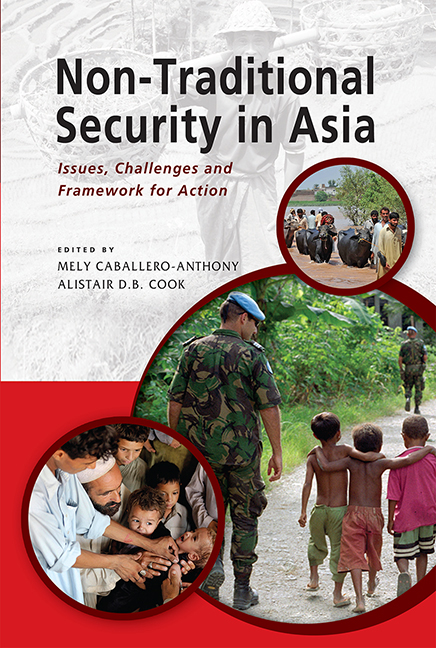1 - NTS Framework
Published online by Cambridge University Press: 21 October 2015
Summary
Over the last two decades, the global security environment has changed dramatically. While the risks of major armed conflict and interstate wars are now on the decline (Human Security Centre 2005), the global community is increasingly confronted with security challenges emerging from a host of local as well as transnational threats which are primarily non-military in nature but also include the threat of state sponsored violence on its own population and the emergence of non-state armed actors. These security challenges, now referred to as non-traditional security (NTS) are proving to be more severe and more likely to inflict more harm to a greater number of people than conventional threats of interstate wars and conflicts. As a consequence, policy-makers around the world have had to re-think their security agendas and find new and creative ways to address these security challenges. This has occurred with a necessary reimagining of what constitutes security threats to the state through conceptualizing the state through its population rather than traditional notions of sovereignty.
Within Asia, the shift in understanding what constitutes a security threat has changed the way states interact as they face common threats and longer term consequences that face their societies. Examples of non-military security challenges to Asia include the spread of infectious diseases like Dengue Fever, H5N1 (the “bird flu”) or Severe Acute Respiratory Syndrome (“SARS”), managing the aftermath of natural disasters like the 2004 and 2011 tsunamis, trans-border pollution which has caused “the haze” over Southeast Asia, as well as problems of irregular migration and transnational crime. These NTS challenges pose dangers to the region irrespective of national boundaries and in return, they demand transnational solutions and the building of states capacities to respond to these security threats.
Since many of these security challenges are transnational, states tend to draw closer and establish institutional and procedural arrangements to respond to what are often complex security challenges. As a consequence, there is a noticeable trend among state and non-state actors to turn to regional and multilevel relationships as a preferred framework to respond to trans-border and non-traditional security problems. These, in turn, have had profound implications for regional security cooperation among states in Asia.
- Type
- Chapter
- Information
- Non-Traditional Security in AsiaIssues, Challenges and Framework for Action, pp. 1 - 14Publisher: ISEAS–Yusof Ishak InstitutePrint publication year: 2013



